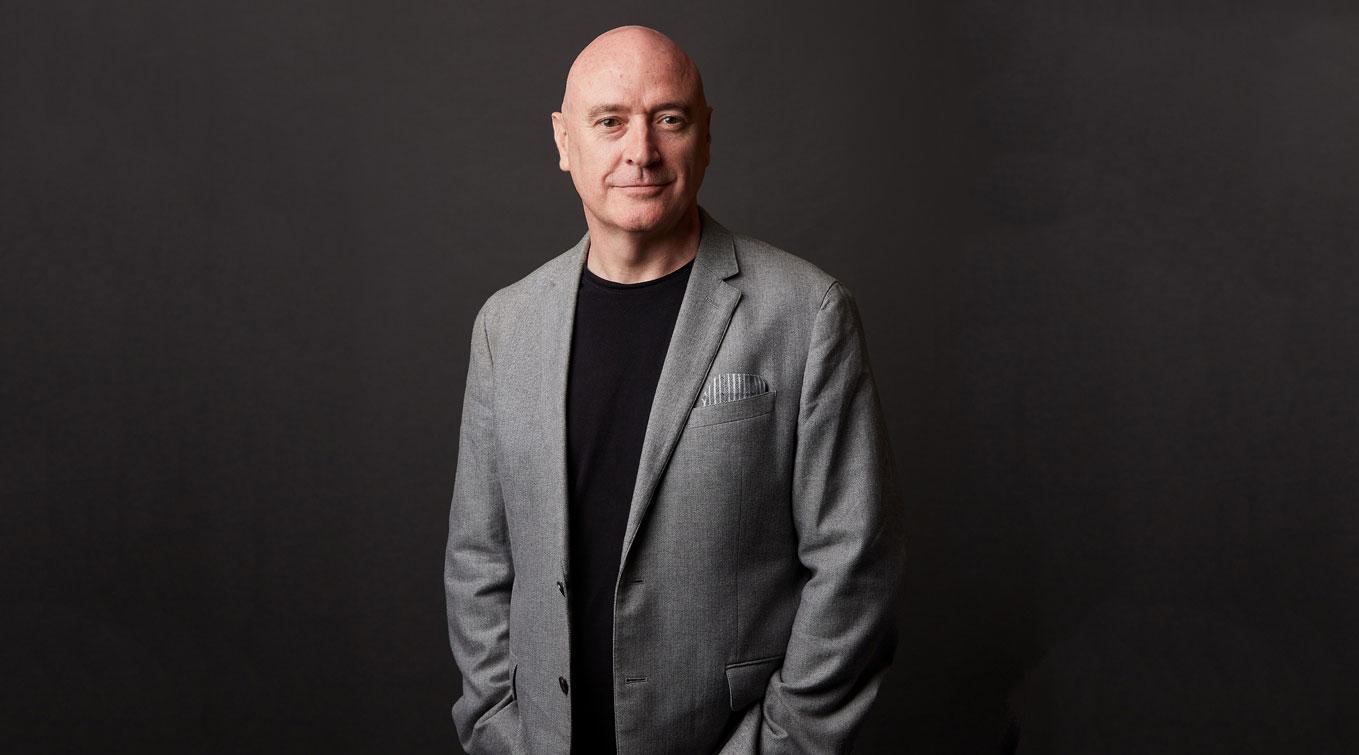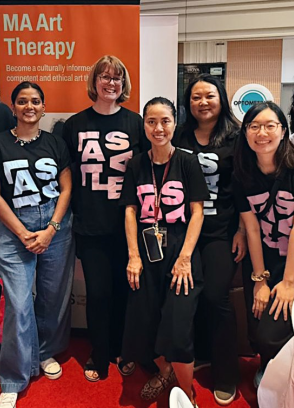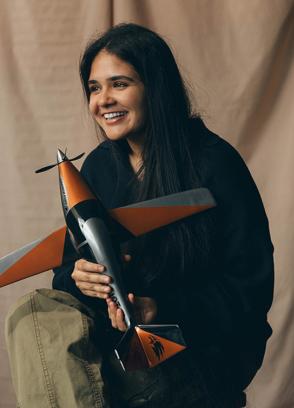There’s a secretive nature to the world of teaching, as theatre practitioner Daniel Jenkins observed. Even as an experienced theatre educator and actor trainer, he rarely got the opportunity to see what other teachers did once they entered the studio and shut the door.
“You never quite know what anybody else is doing. So you do your own thing when you teach, in your little bubble, hoping that what you’re doing is okay or that your approaches work. But you’re never really sure, because you don’t have anything else to compare it to, or other techniques or approaches to learn from,” says Daniel.
Enrolling in the MA Arts Pedagogy and Practice programme at LASALLE College of the Arts has allowed him to sneak a peek at other people’s teaching: how they approached their work, how their students differed from his and how other arts educators adopted different approaches to suit their disciplines and students.
Daniel credits the MA Arts Pedagogy and Practice programme with giving him the space to develop and articulate a personal teaching philosophy. “I think we get so caught up in doing what we’re doing – and particularly when you’ve been doing it for a long time – it's not easy to find the time to consider exactly what you are doing or, more importantly, why you are doing it. Only after actually considering your approach, can you then improve, adapt and grow as a teacher.”
We asked the veteran theatre stalwart to shed light on his reasons for pursuing a postgraduate qualification, the challenges and joys of transdisciplinary collaboration and how the programme has reinvigorated him as an artist and an educator.
As a practitioner with so many years of professional theatre and teaching experience, why return to school to do an MA in Arts Pedagogy and Practice?
Initially, I felt that I needed the qualification to ensure that I was relevant and qualified enough to stay employed. There was a time when having a bachelor’s degree was enough for teaching. Now, that is not the case any more. Everyone’s got a BA and a lot of people have a master’s – it really felt like I needed to upgrade my skills. During the programme, the motivation became more about doing something for myself, expanding my knowledge of who I am as a teacher and how I approach my work, as well as how I approach working with my students. And that became the goal: I still wanted the qualification, but it became more about developing myself and my knowledge as both a teacher and an actor.
What were your most memorable moments?
They’re all pretty memorable! The transdisciplinary group project – which is a centrepiece of the programme – was a highlight as well as a challenge. Because you're working with classmates who come from different backgrounds and different art forms, creating something collaborative and working as a team can be very difficult, as everybody is coming at it from their own angle. Coming from a background in theatre, which is a very results oriented industry that is often without the luxury of time and resources to experiment, the free exploratory process of allowing ideas to grow and foment until they are developed was incredibly difficult for me. Having said that, the end result was extremely satisfying. Looking back at it, had we done what I would've typically done – make decisions straightaway at the start, stick to it and work our way through – what we would have ended up with would not have been half as worthwhile as what we actually created. It allowed me to understand that sometimes the journey is far more important than the destination.
It was not without problems and disagreements of course, however, the different perspectives and approaches each artist brought to the work, helped to create a process that was stimulating, surprising and ultimately rewarding. We were exploring how people experience emotions, how one’s heartbeat could be stimulated to create an emotion, as well as discovering a way to analyse the heartbeat data. The heartbeat meant different things to each of us so it was challenging to find a way to collaborate, accept and smooth over our differences to get to the end result. With hard work, sensitivity, understanding and teamwork the final presentation went well and I was very proud of the work that my classmates and I created.
The MA Arts Pedagogy and Practice programme invited several guest lecturers from overseas to work with the programme. Which visiting speaker impacted you the most?
They were all inspiring. The two that I probably enjoyed the most were Professor Kelvin Cooper and Professor Steven Wangh. When I was told that Professor Kelvin Cooper would be leading us in a dance workshop, I was very apprehensive. But it ended up being so inspiring and enlightening because you are taking yourself out of your comfort zone and putting yourself into the shoes of a student. By doing things that may make you feel nervous or worried, one realises what your students may be feeling when we, as their teacher, ask them to participate in an exercise or activity, often disregarding how they might feel about it. So to place yourself in that situation where you feel vulnerable as a student was new and exciting.
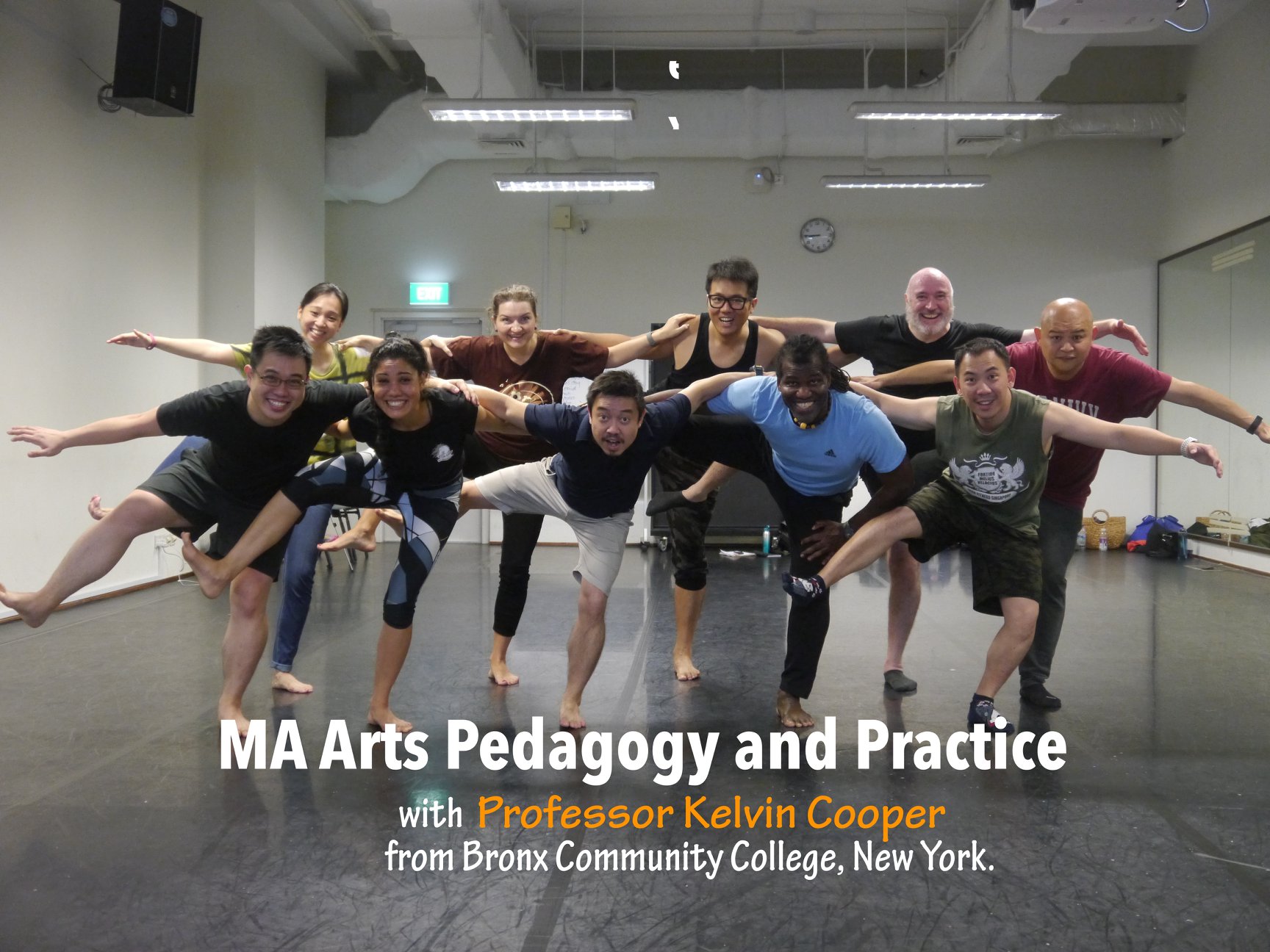
For Professor Stephen Wangh, it was wonderful to have the opportunity to meet and work with such a well-known theatre practitioner. He is somebody whose approach and the way that he works with students is so different from my own. Because he has a very physical approach to acting, his workshops again allowed me to explore a method that although from the outside may appear strange or uncomfortable. But having the opportunity to participate and experience this pedagogy first-hand, I was able to see the benefit of an approach and a methodology I may have previously dismissed. It was scary at first, but it was also great to see it from a different perspective.
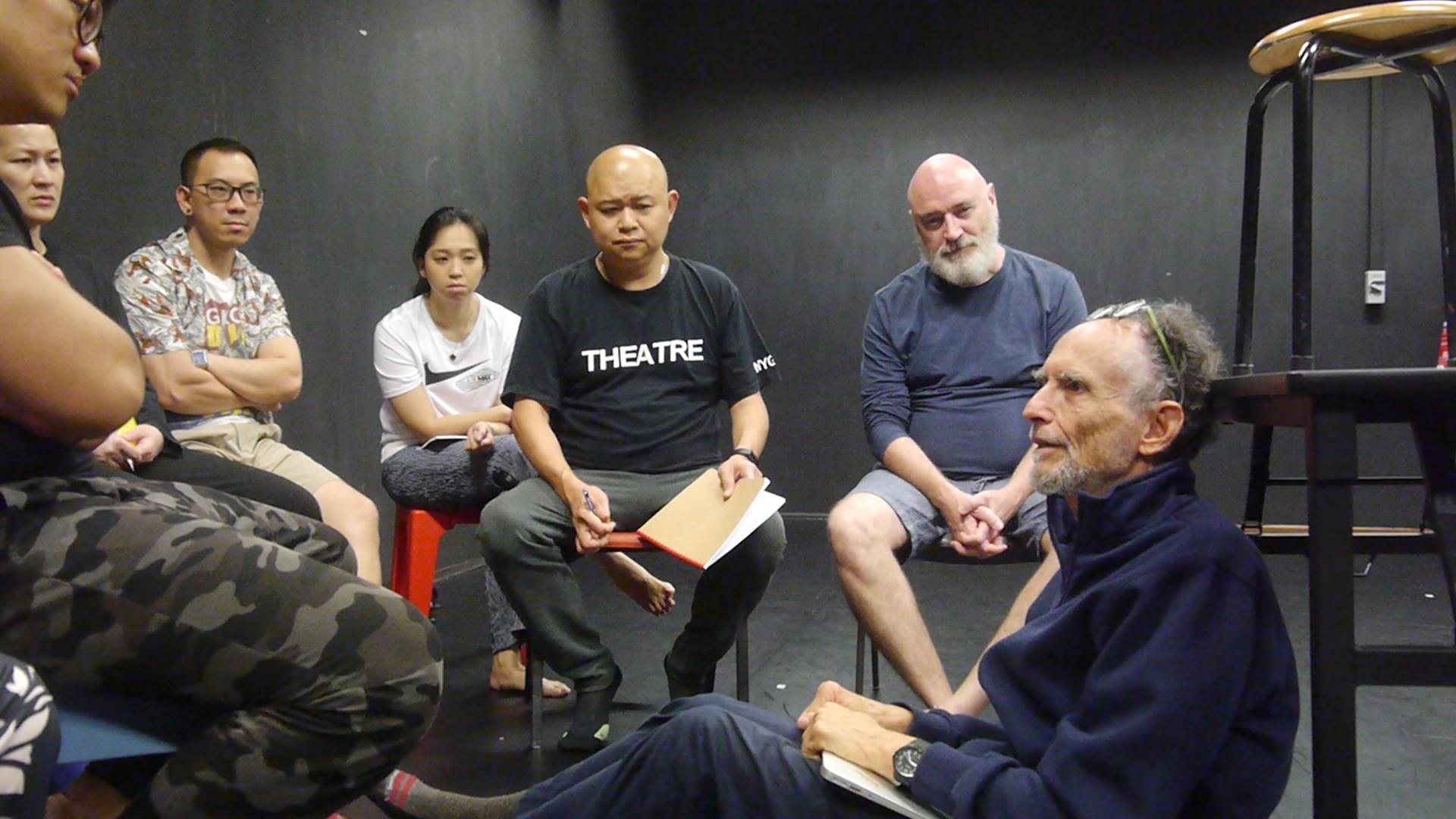
Your research looked into using music in actor training. What were the takeaways from your research and where do you see it going?
One of the main benefits of my thesis and research was that it had a practical basis and it was something that I could use within the classroom and the rehearsal studio. One of my concerns when I started the MA was that it was going to be very academic and theory-based, and I would be forced to learn things that were of no interest to me and had no bearing or relevance to what I did as an artist. But actually what I found was that it catered to everybody's individual art form and allowed them to find something within their own practice that they could develop and grow.
My thesis looked into using music in actor training as a way to develop emotion and a character. What was wonderful was that I was able to take what I had developed over a year and a half and create some practical exercises for use in the studio. I’ve used them with my students at LASALLE in the classroom, as well as my students outside and it really works! Of course, I think that it is continually developing and changing as I work on it. At some point it would be great to develop the ‘Jenkins methodology of music as a means of actor training’, and find ways to incorporate it more into the actor training studio. Whether that leads to a PhD or a book – who knows? But it’s an ongoing process which continues to surprise, inspire and excite me
What advice would you give to prospective students who were interested in the MA Arts Pedagogy and Practice programme at LASALLE?
Do it! I think that you're never too old to learn. I’m 51 and it's been such an enjoyable experience. It’s been something that has reinvigorated me, motivated me and allowed me to think about everything that I do both in my art form and my teaching from a new perspective. I think it's very easy for us to get stuck in what we do and think that there is only one way of doing it. The MA Arts Practice and Pedagogy programme enables you to see things from different perspectives and approach your art form from new angles – which is refreshing and exciting.
If you’re worried about the theoretical and academic sides of it, the support is always there to help guide you through. The course is structured so that one module builds onto the next, so you aren’t plunged into something out of your depth right at the start. You are supported and guided all the way through to your thesis with a gradual and gentle approach. It's a very encouraging environment with great camaraderie within the classroom and amongst your classmates. If you still have doubts, fears and nerves, the lecturers are there to help and support you. It has given me a new outlook not only on teaching, acting and directing, but on how one learns, grows and develops as a person. So do it!
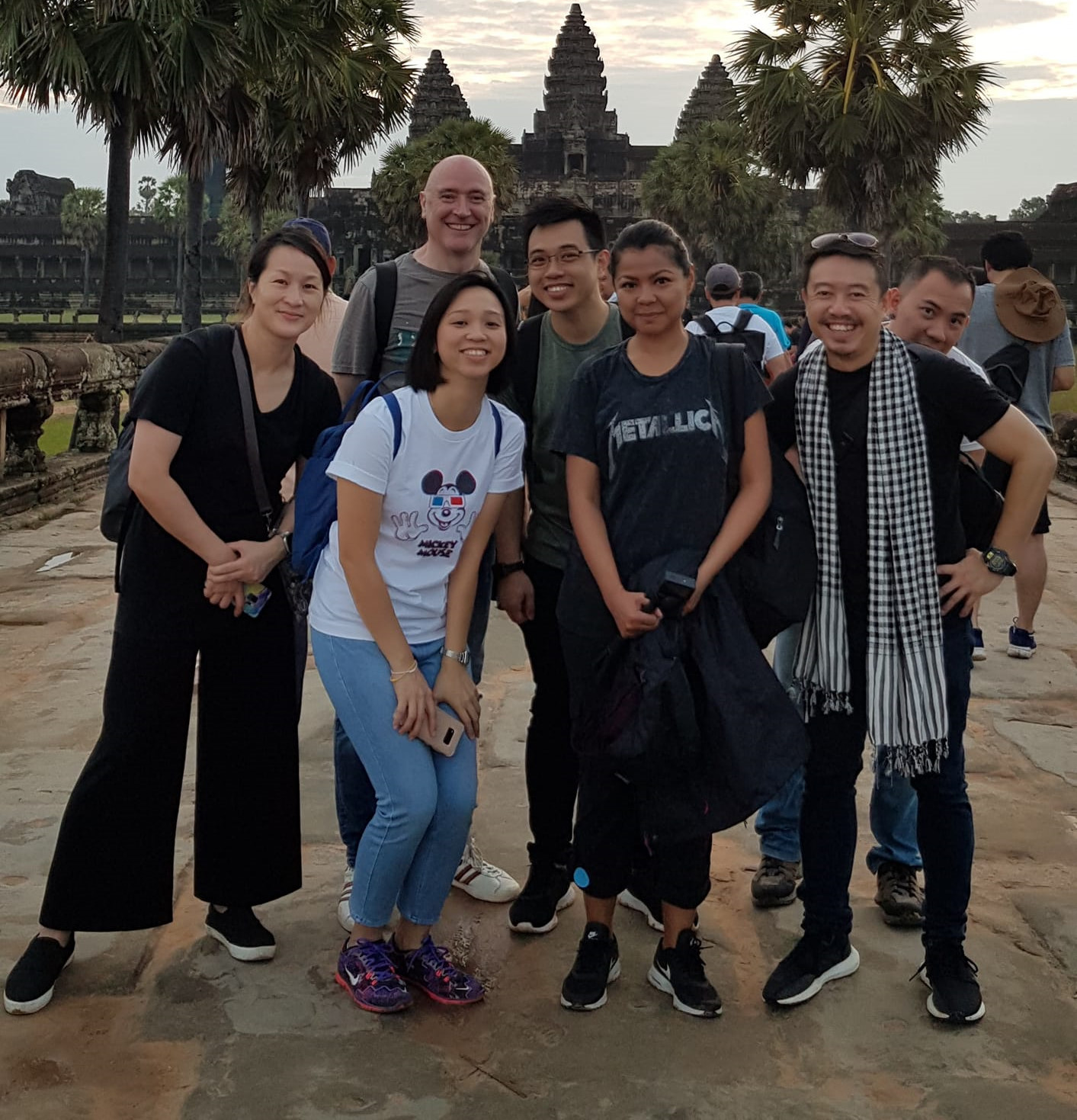
Apply now for our postgraduate programmes.

